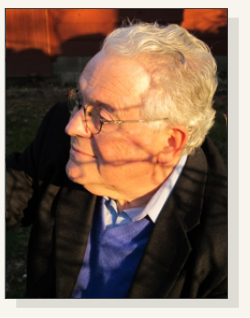Dr. Bonn Biography – Greater Philadelphia Psychiatrist
 I grew up in the Wissinoming section of Philadelphia and attended public schools including Central High School. Early in life I had a great curiosity about history and the social sciences, probably because I wanted to understand people and the world around me. Even though in medical school I most enjoyed the study of the marvelous intricacies of the human body and considered a career in the teaching of anatomy, I sensed early on that the practice of psychiatry fitted my feelings and interests more than anything else in the medical field.
I grew up in the Wissinoming section of Philadelphia and attended public schools including Central High School. Early in life I had a great curiosity about history and the social sciences, probably because I wanted to understand people and the world around me. Even though in medical school I most enjoyed the study of the marvelous intricacies of the human body and considered a career in the teaching of anatomy, I sensed early on that the practice of psychiatry fitted my feelings and interests more than anything else in the medical field.
In those years most specialty residency training programs reflected the kind of talk therapy and theory that was in vogue at the time, psychoanalysis, and I chose instead to train at the Hospital of the University of Pennsylvania because it was then open to diverse ideas about many kinds of therapeutic help that might be useful to people who suffered emotional pain. At the beginning of my training in psychiatry I well remember my frustration in wanting to be able to relieve problems of human suffering while at the same time being inexperienced and limited by my therapeutic resourcefulness (and without the much more effective medications that are available today).
After my residency, I spent two years as a military psychiatrist, during which I also had the opportunity to spend time with one of the founders of behavior therapy, Dr. Joseph Wolpe. I then served as the director of a community mental health center near the University of Pennsylvania for four years, where I was challenged to develop many innovative approaches to treatment.
Counseling in Philadelphia
When I finally felt ready I opened my first office in Northeast Philadelphia, close to my roots. From the start I tried to make my therapy style efficient enough so that it could be affordable to working people whose funds could often support but a limited number of sessions and down to earth enough so that people might feel comfortable in working with a professional who was new and unknown to them at the outset. Early on in practice I recognized that I needed to somehow find a way to help the many people I saw suffering with what we now call panic disorder and agoraphobia, whose lives were often imprisoned by misunderstood episodes of near terror in the mind and body. Developing skills to help people manage and master this affliction, as well how to use medication to aide in the therapy, was most satisfying for me.
Over the years I have never given in to pressure from the health insurance industry to push psychiatrists into the limited role of medication providers, to be so called “med-checkers”. I believe that there is a unique and valuable benefit in being able to offer combined talk therapy and medication at the same time whenever needed.
I believe that my understanding and clinical creativity is as broad and deep as that of any trained non-medical
psychologist and that through my long training and experience as a medical doctor, I have an understanding of the anatomy, biochemistry and factors of family heredity that gives me dimensions of understanding and tools that are not available to non-physician therapists.